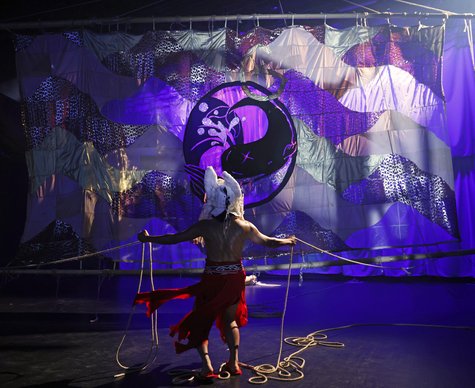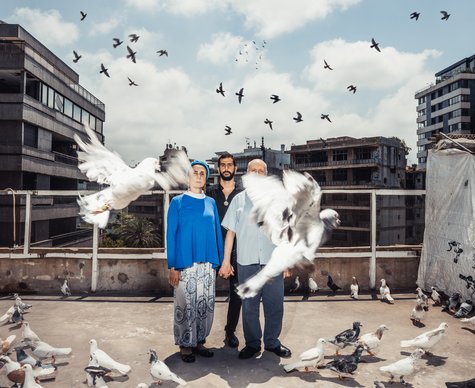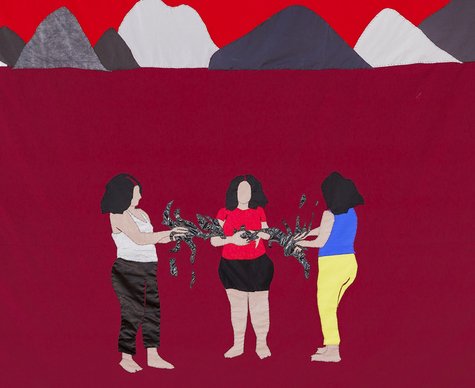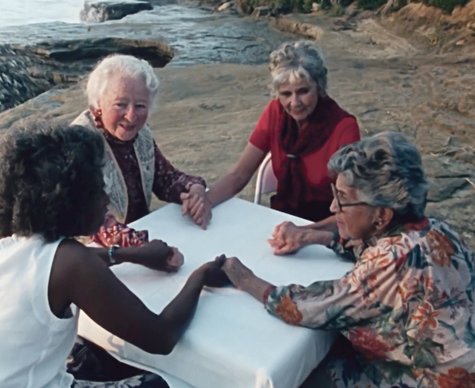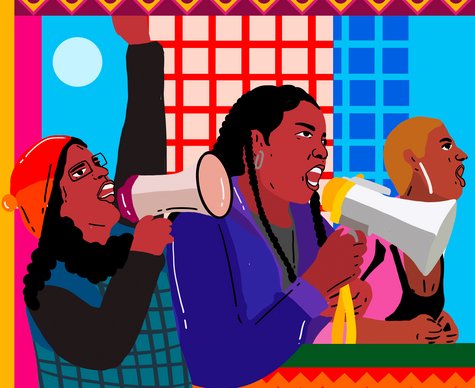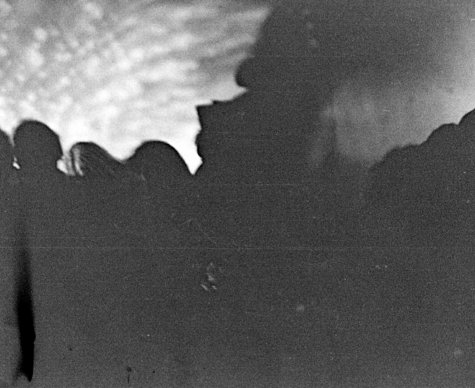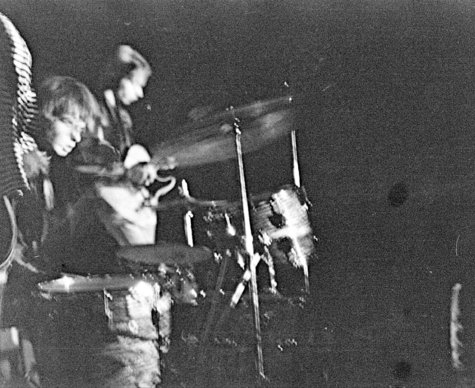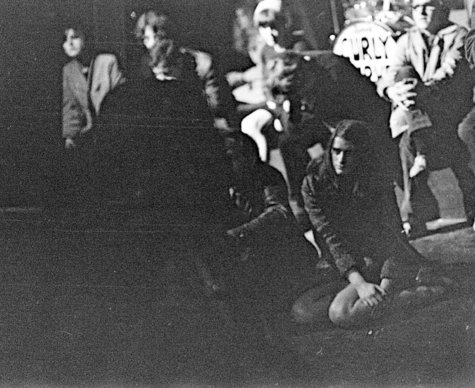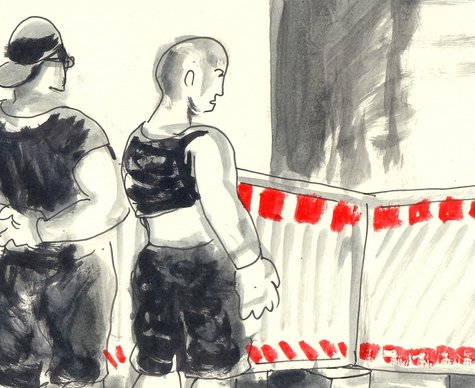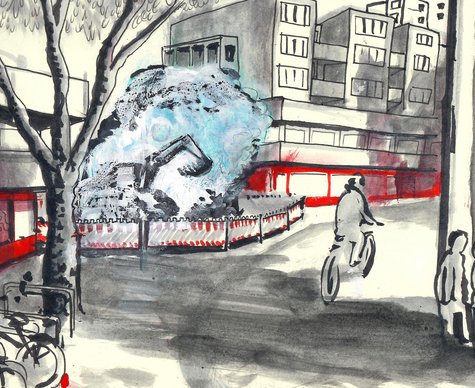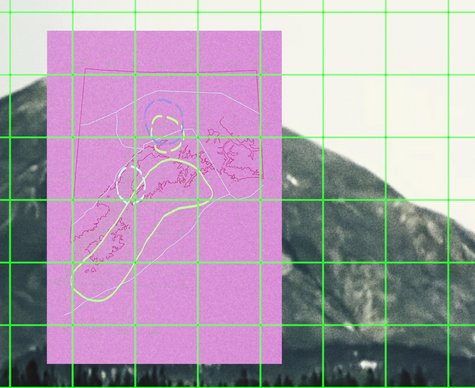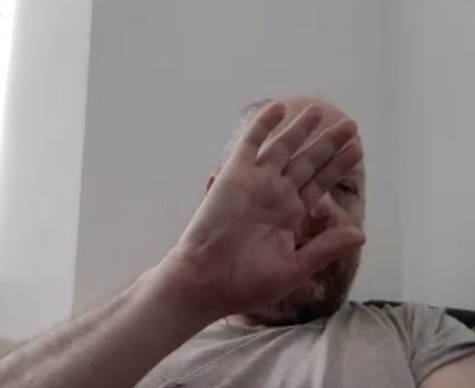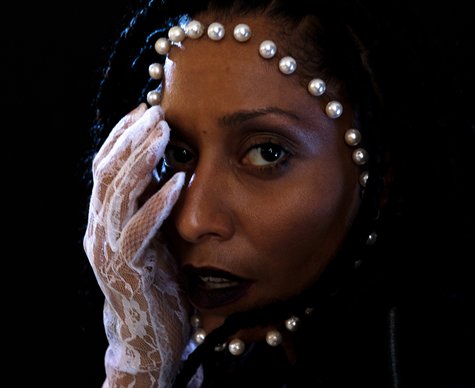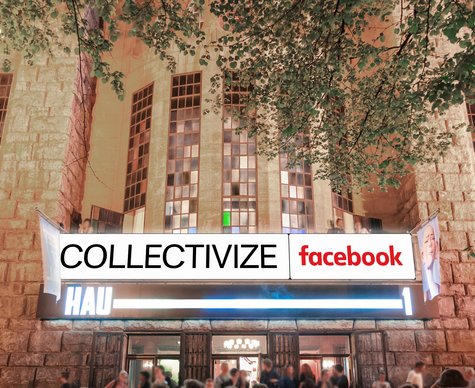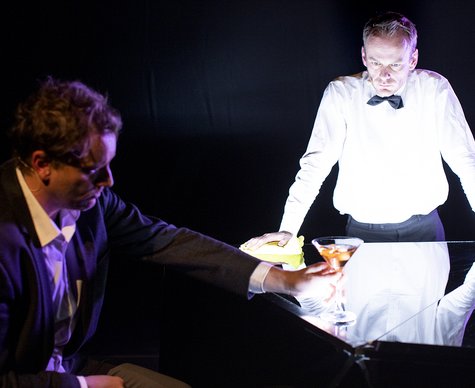POSTPONED: Understanding Prison
Carceral Culture and Human Rights in the MENA Region – Day 2
Part of “Understanding Prison”
- Dialogue
- Workshop
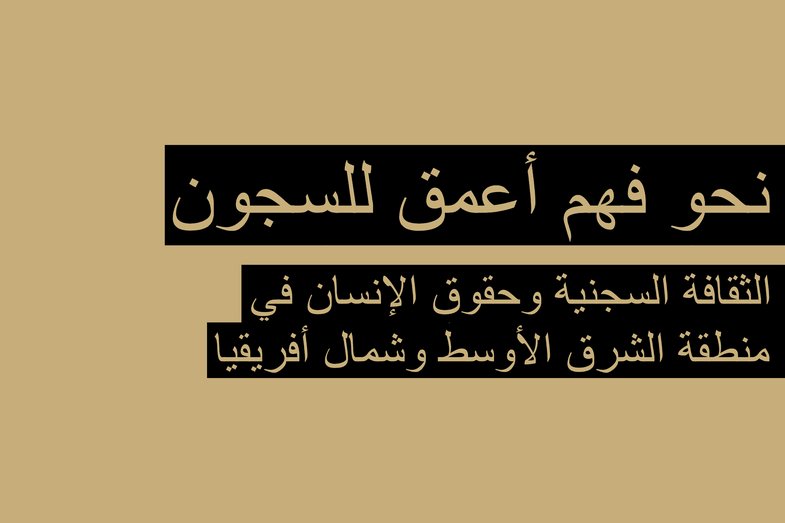
Unfortunately, the three-day event “Understanding Prison: Carceral Culture and Human Rights in the MENA Region” cannot take place as planned. HAU supports this difficult decision of the organizers Mena Prison Forum und UMAM Documentation and Research, who justify the postponement as follows:
“Due to the situation in Gaza, the instability and threat of violence looming over Lebanon, and the highly emotional and charged environment both regionally and globally, we have made the difficult decision to postpone the upcoming event ‘Understanding Prison: Carceral Culture and Human Rights in the MENA Region.’
We did not make this decision lightly. It was made with careful consideration of the time and energy needed from the Mena Prison Forum and UMAM D&R team, and from our partners and participants, to engage in this event. We do not believe that the regional and global dynamics allow, at this moment, for the open, interdisciplinary, and critical discussion of human rights, justice and accountability, and prisons and carcerality that we hoped for. We hope to be able to discuss these issues at a better moment and to reconceive the event to appropriately address these topics in light of the ongoing developments.”
Together we are planning to postpone this project, which is also important for us, until next year.
---
On Friday, Eyal Weizman (Forensic Architecture) and Amer Matar (ISIS Prisons Virtual Museum) will give presentations on their respective ways of working in projects of visualis ing, recording, and documenting places of incarceration through creative and technological means. Margarita Tsomou (HAU) will moderate the presentation.
The evening panel discussion will focus on the role that prisons, torture methods, and repressive techniques have played in the formation of social movements and political culture. The panel discussion will feature Jaber Baker (author), Uğur Ümit Üngör (NIOD Institute for War, Holocaust and Genocide Studies), Hossam Hamalawy (journalist & scholar), and Mathias Ghyoot (Princeton University), moderated by Jad Yateem (MPF).
With: Jaber Baker (Author), Uğur Ümit Üngör (NIOD Institute for War, Holocaust and Genocide Studies), Hossam Hamalawy (Journalist and academic), Mathias Ghyoot (Princeton University)
Moderation: Jad Yateem (MPF)
Programme
10:30–12:00
Workshop 1: Soundscapes of MENA Prisons
This workshop aims to allow the performers from Thursday’s Syrian prison song concert to critically discuss the role of music in prisons. Furthermore, people dealing with prisons and culture under repressive conditions (authoritarianism, detention, etc.), and other interested individuals are welcome to attend. The workshop will engage with themes related to not only musical expressions but also the broader soundscapes coming out from the lives and afterlives of people who have experienced incarceration.
With: Hassan Abdulrahman, Ibrahim Bayrikdar, Kesra Kurdi, Assad Shalsh, Haitham Qatrib (musicians & former detainees), Ahmed Said (Human Rights Activist, poet & former detainee)
Moderation: Mina Ibrahim (MPF), Hannah Tatjes (MPF)
12:00–13:30
Break
13:30–15:00
Workshop 2: From Al Khatib to Koblenz: Legal Possibilities and Political Challenges in Germany
The workshop aims to allow members of the Syrian activist community in Germany and event attendees to have an open discussion on the current situation facing human rights and accountability in Germany regarding Syria. Individuals working on accountability, human rights, and international law are welcome to attend, share their experiences and perspectives.
With: Anwar al-Bunni (human rights lawyer), Patrick Kroker (ECCHR), Wafa Moustapha (human rights activist / Free Syria’s Disappeared), Joumana Seif (ECCHR), Fritz Streiff (Human Rights Lawyer/ 75 Podcasts)
Moderation: Susanne Buckley-Zistel (University of Marburg), Maria Hartmann (University of Marburg)
15:30–16:00
Break
16:00–17:00
Book Launch: “Syrian Gulag: Inside Assad’s Prison System”
The English version of “Syrian Gulag: Inside Assad’s Prison System” (2023)will be launched i n Germany with authors Jaber Baker and Uğur Ümit Üngör. This discussion will allow them to provide insights into the contents of the book and their research process, and to answer questions from the audience. People interested in the Middle East, governance and rule, and carceral systems are welcome to attend.
With: Jaber Baker (author), Uğur Ümit Üngör (author)
Moderation: Anne-Marie McManus (Forum Transregionale Studien), Stella Peisch (MPF)
17:00–17:30
Break
17:30–19:00
Visualising Prisons: Methods of Research on Injustice
This event will deal with ways of visually representing sites and experiences of incarceration through various advanced technologies. We will look at two examples of capturing and documenting sites of incarceration in Syria: First, Amer Matar will present the work of the ISIS Prisons Virtual Museum, which is publishing documentary 360-degree videos, virtual reality reconstructions of sites, audio recordings, personal testimonies, video footage, and primary source data of 40 ISIS prisons in Syria and 15 sites in Iraq. The content will be available for researchers, legal investigations, and other interested people through a searchable database. Second, Eyal Weizman will give a presentation on Forensic Architecture’s ongoing investigation on the Saydnaya Prison. Since 2016, the investigation has been focussing on the deaths, tortures, and violations of international law in this detention site of the Syrian government.
With: Eyal Weizman (Forensic Architecture), Amer Matar (ISIS Prison Museum/Alshar3 Media)
Moderation: Margarita Tsomou (HAU Hebbel am Ufer)
19:00–19:30
Break
19:30–21:00
Panel 2: MENA Prisons in their Complexity: Histories, Formations, and Impacts
This panel addresses the historical and colonial continuity of prisons and their significance for political culture and social self-understanding. Scholars working on prison systems in the region share their insights on the connections between the “inside” and the “outside” of MENA prisons. How can we read the modern history of the region through its prisons? What are the continuities and discontinuities of carceral memories since the 19th century? How do methods of torture and techniques of repression shape social, cultural, and political discourse on regional and global levels?
With: Jaber Baker (novelist, academic & activist), Hossam el-Hamalawy (activist and academic / FU Berlin), Mathias Ghyoot (Princeton University), Uğur Ümit Üngör (NIOD Institute for War, Holocaust and Genocide Studies)
Moderation: Jad Yateem (MPF)
Dates
Credits
A cooperation by MENA Prison Forum, medico international and HAU Hebbel am Ufer. Supported by: European Center for Constitutional and Human Rights (ECCHR), Open Society Foundation, Heinrich-Böll-Stiftung, Danish Institute Against Torture (DIGNITY).
Location
HAU2
Hallesches Ufer 34, 10963 BerlinThere are two marked parking spots in front of the building. Barrier-free restroom facilities are available. Four relaxed seats are available in the first row of HAU2. Tickets for wheelchair users and accompanying persons can also be booked via the ticketing system. If you need help, please contact our Ticketing & Service team at +49 (0)30 259004-27 or send us an email to
tickets@hebbel-am-ufer.de.
